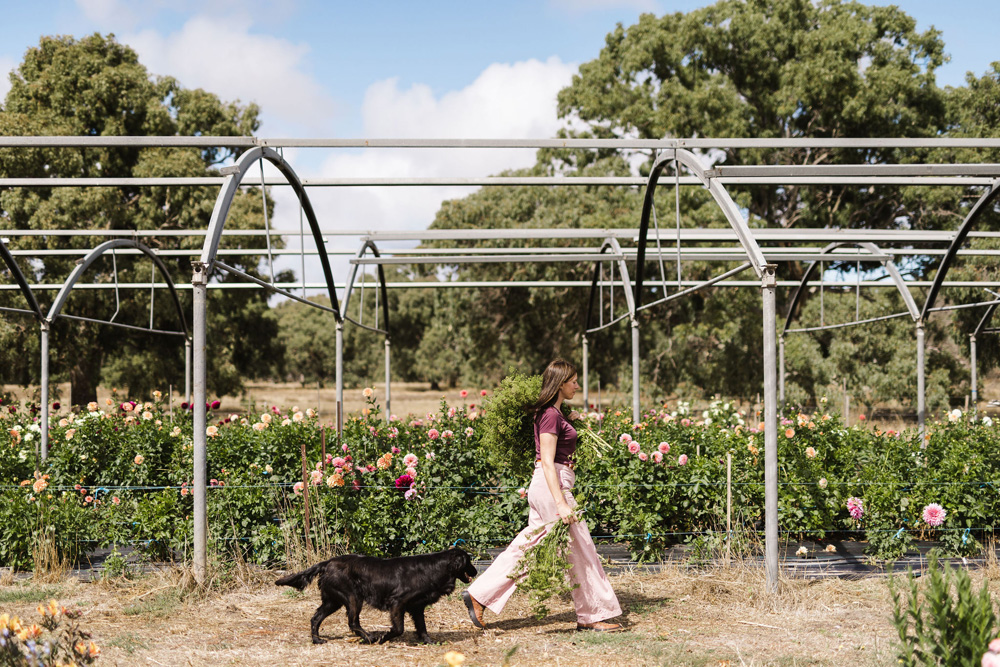
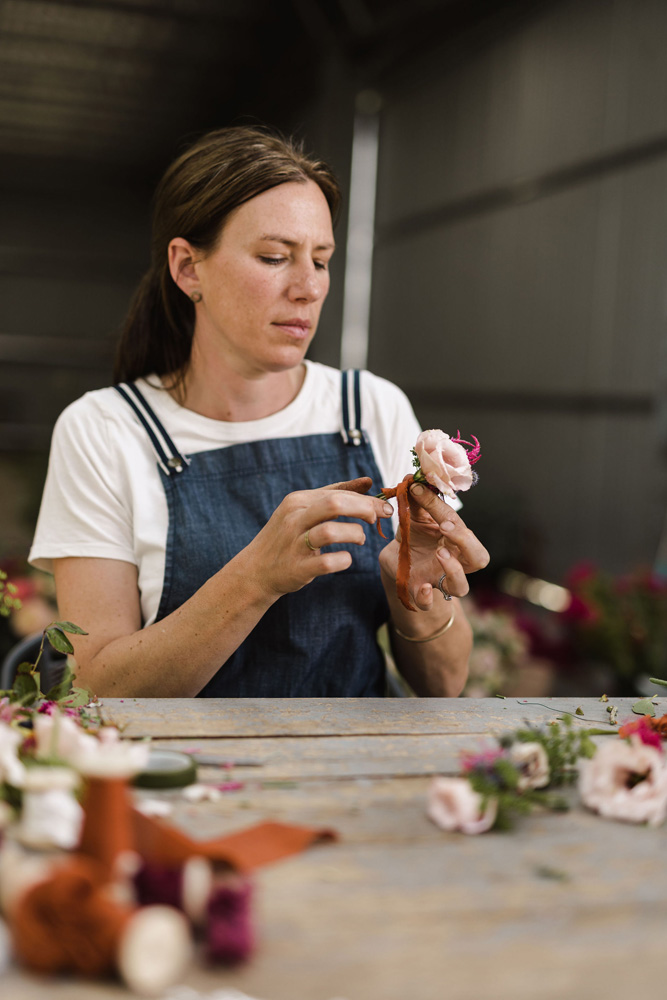 The seeds of my future were planted by my ambitious feminist mother who saw boundless potential in her children to do whatever they wanted, provided they worked tirelessly to achieve their goals. These blossomed into the wonderful gifts of confidence and a sense of possibility that were fostered by the English boarding school system. It was assumed that after university I would choose a profession, join a graduate scheme in a blue-chip company and progress through the ranks. Status, financial stability and, most importantly, my female independence would be assured.
The seeds of my future were planted by my ambitious feminist mother who saw boundless potential in her children to do whatever they wanted, provided they worked tirelessly to achieve their goals. These blossomed into the wonderful gifts of confidence and a sense of possibility that were fostered by the English boarding school system. It was assumed that after university I would choose a profession, join a graduate scheme in a blue-chip company and progress through the ranks. Status, financial stability and, most importantly, my female independence would be assured.
I dutifully followed the path that had been set out for me. I was sponsored through university by an international accountancy firm and this comprehensive initial training turbo-charged my career post-graduation, resulting in six-monthly promotions for the first few years. I was successful. I was doing it. Yay!
Very quickly, my identity and self-worth became inextricably linked to my career. Nothing would stand in the way of work. I travelled extensively, once moving countries with just a weekend’s notice, and worked six or even seven days a week, every week, for decades. I was always chasing the next promotion, the next big win, the next affirmation of my success; each one confirming that the missed family celebrations and dwindling list of friends was worth it.
But over time, the adrenaline hits started to wane and the stifling boredom of endless days and nights in front a computer screen started to set in. Was there actually a real-world benefit to all these reports, committee papers, and policies? Other than affording expensive spa retreats to recover from the stresses of work and a nice wardrobe, was the salary worth the sacrifice? I had outsourced my home life and over the years it had become a well-oiled machine. A wonderful small army of people cleaned, cooked, ironed, and gardened, but even I couldn’t fail to notice the stupidity of my situation each time I paid the dog-walker’s invoice.
Before long, this unsustainable work situation and my husband’s desire to give up banking and return to his family farm on the south coast of Australia would come crashing together in a thunderstorm of emotions, mis-placed identity, assumed obligations, generational baggage and simple obstinacy.
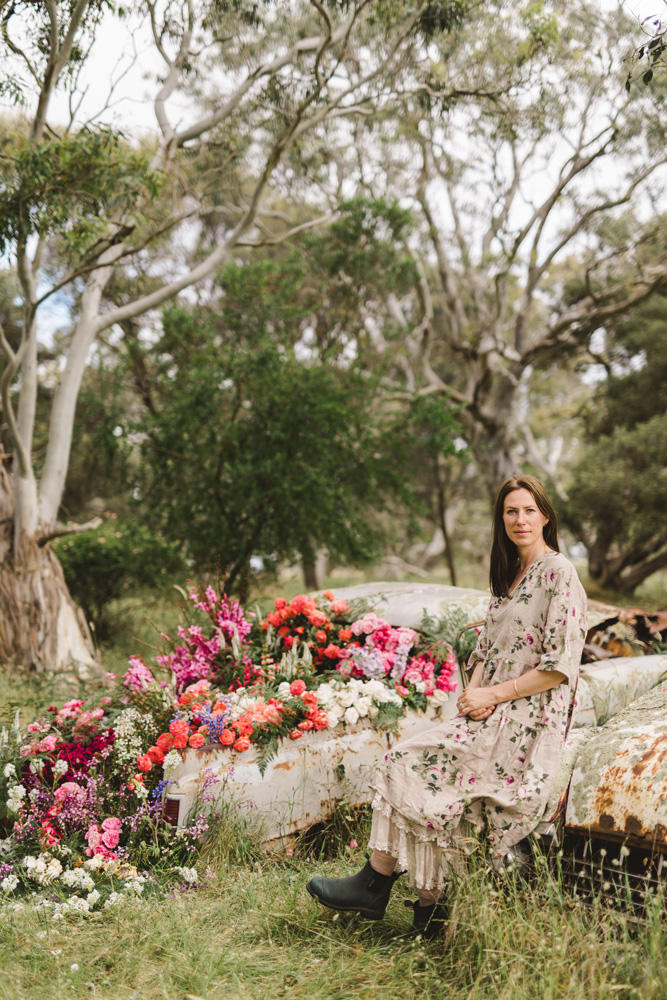 The thought of moving to the other side of the world, and leaving family, career, friends (and civilisation) had seemed effortless in the heady initial years of young love. But as time went on and weekend conversations about ‘life on the farm’ became more serious, panic would set in. What would I do in the middle of nowhere? What about my career?
The thought of moving to the other side of the world, and leaving family, career, friends (and civilisation) had seemed effortless in the heady initial years of young love. But as time went on and weekend conversations about ‘life on the farm’ became more serious, panic would set in. What would I do in the middle of nowhere? What about my career?
How easy it seems, looking back, to see that the obvious thing was to leave the unhealthy job, regain perspective, achieve balance, and move to a quieter, wholesome life on the farm. Wait – are you crazy? I hadn’t worked that hard for so many years just to throw it all away only to revert to an out-dated gender stereotype where my life would be consumed with the domestic drudgery of endless loads of laundry and mopping the kitchen floor!
Round and round in circles I would go, not understanding why I had such a negative visceral reaction to my situation. The idea of moving to the farm made me feel sick. I couldn’t make sense of the issues. I was unable to leave a job I increasingly disliked, where I was making mean decisions and fighting for my point of view in meetings as if my life depended on it. Why was I flailing and resisting change, finding countless reasons to stall and reject?
It was clear I couldn’t get out of this pickle on my own, so I started researching organisations and programmes that might be able to unpack what was going on. I needed some headspace and, for the first time in my life, I needed help.
One evening, as I multi-tasked across various screens while also trying to eat supper, I stumbled across the Hoffman Process. A few things resonated. I saw aspects of my situation in the stories of others and ultimately decided it was worth a try. With low expectations and not a lot to lose, I drove to the venue. Giving up my phone was an issue, I absolutely needed to remain in contact with my company. I assumed the facilitators would understand that my circumstances were exceptional. They didn’t agree and, of course, I didn’t need my phone any more or less than the other 20 very busy people who had managed to carve this precious time out of their lives. How wonderful it was to truly disconnect and be present.
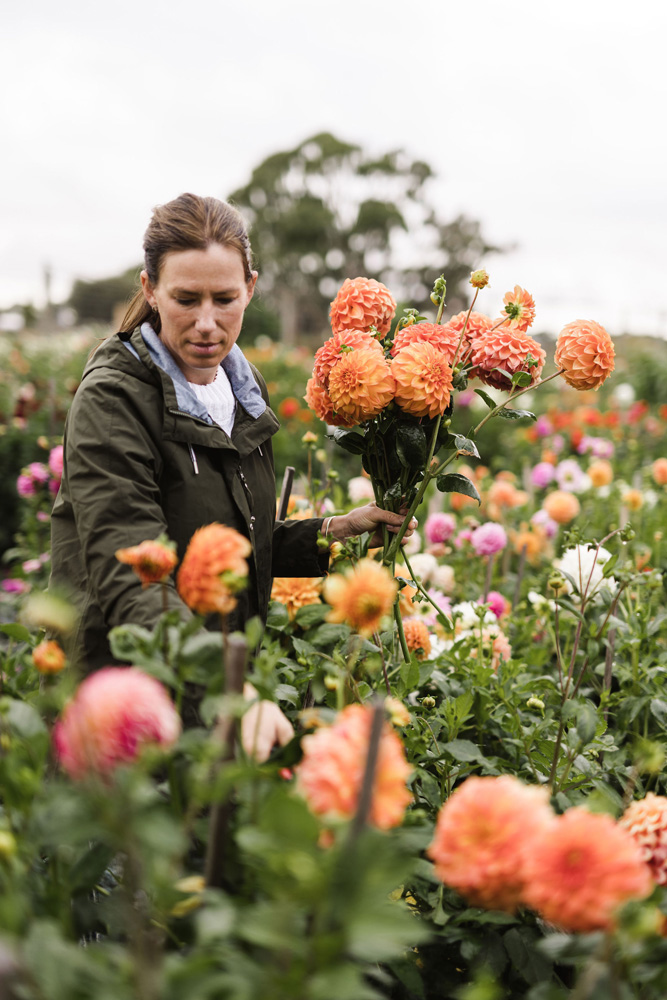 Seven years on, the lasting impact of the Process is actively felt across my daily life. I acquired tools to help manage emotional stressors and to decode my reactions to situations. Life is easier and lighter than it used to be. Many of the rules and obligations I held so dear have been de-bunked and while the detail of the Process week itself is a little blurry now, one lightbulb moment stands out. In this unforgettable session, I visualised a flower garden on the side of a hill. In this warm place, there were rows of flowers, a simple little house and a river running through the garden. The idea of the flower farm was born.
Seven years on, the lasting impact of the Process is actively felt across my daily life. I acquired tools to help manage emotional stressors and to decode my reactions to situations. Life is easier and lighter than it used to be. Many of the rules and obligations I held so dear have been de-bunked and while the detail of the Process week itself is a little blurry now, one lightbulb moment stands out. In this unforgettable session, I visualised a flower garden on the side of a hill. In this warm place, there were rows of flowers, a simple little house and a river running through the garden. The idea of the flower farm was born.
The vision wasn’t totally perfect; no river flows in this dry, flat part of Australia we’ve now moved to. In fact it’s the driest region on the driest continent on earth and growing flowers is a famously thirsty activity. Nonetheless I do grow my beautiful flowers in rows and live in a very simple house. It took me a while following the Process to join the dots and to make real life changes but that was the starting point. My life today is simple but richer and more successful. I just needed to redefine what success looked like for me and that wasn’t in the form of a big salary and classic corporate job.
Now I spend my days on the flower farm with my dog, Ivy, glued to my side, cultivating the most incredible flowers. Rather than fighting in meetings, I’m greeted with smiles on doorsteps when I deliver flowers and receive effusive letters from brides who fell in love with flowers following their wedding. While I work seven days a week (still working on that balance), I’m fulfilled, and have bags of purpose. My creative and emotional side has had room to grow and in writing my book, Secrets from the Flower Farm, my enduring need for intellectual challenge has been satisfied (for now).
My book is all about growing cut flowers wherever you live, no matter how challenging your situation. It contains all the flower-growing secrets I’ve picked up over the years and is relevant whether you’re gardening in a lush English cottage garden, a Californian dry garden or even in pots on a New York balcony.
My true ‘secret’ however is one that probably only Hoffman graduates can fully understand. Although I grow flowers, since I’ve done the Process it’s really the flowers that have grown me into a better, easier version of myself.
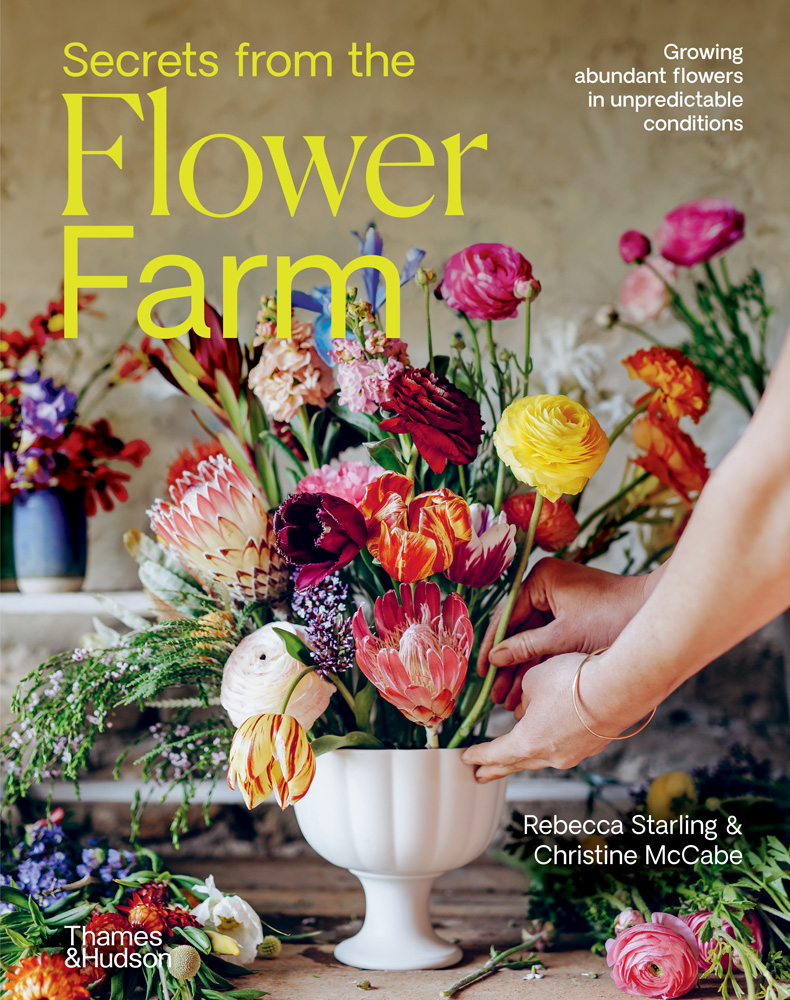 Rebecca’s book, Secrets from the Flower Farm is published by Thames and Hudson and is available now. For Amazon in the UK, click here
Rebecca’s book, Secrets from the Flower Farm is published by Thames and Hudson and is available now. For Amazon in the UK, click here
Visit Rebecca’s website at:.starlingflowers.com.au Follow her on Instagram @starlingflowers_
All photography in this article © Christopher Morris photography, reproduced with permission. Cover art © Thames & Hudson Australia





 Sign up to receive monthly newsletters from Hoffman
Sign up to receive monthly newsletters from Hoffman